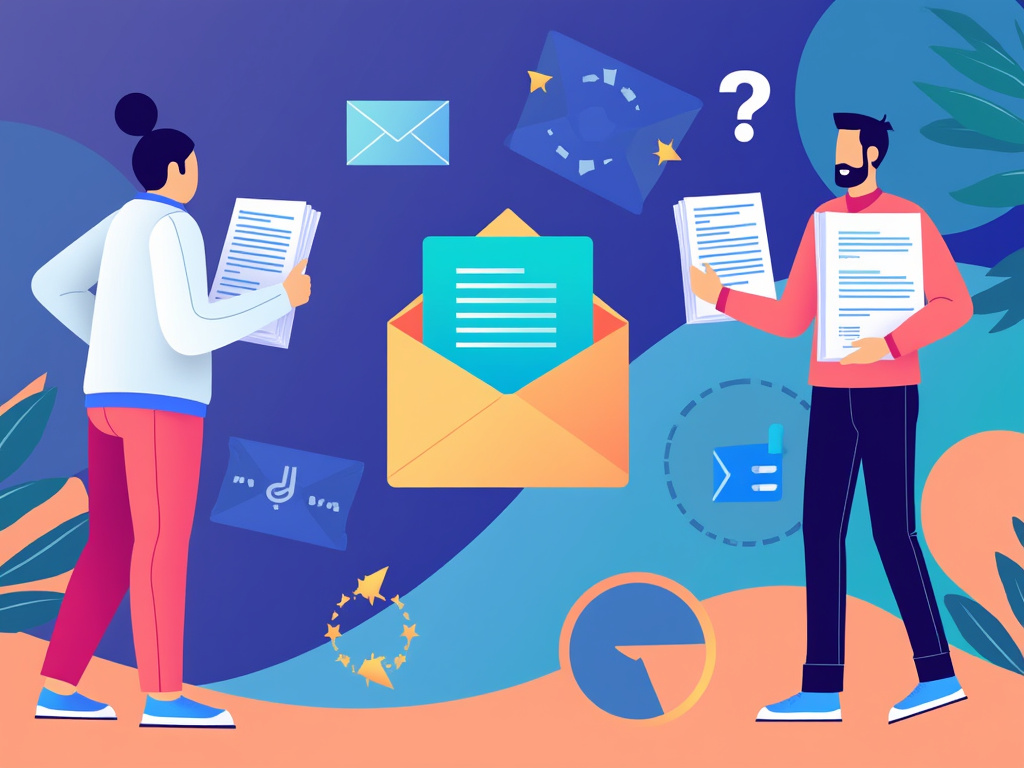Email Marketing Success: Top 13 GDPR Compliance Questions Answered

Building a solid email marketing strategy for your e-store can feel like navigating a maze of regulations, especially when you factor in GDPR compliance. The General Data Protection Regulation (GDPR) introduced in 2018 has set a high bar for how businesses manage customer data. For e-commerce businesses, understanding these rules isn’t just about red tape—it’s fundamental to building trust with your customers and ensuring the long-term success of your marketing efforts.
Let’s break down the top questions surrounding GDPR compliance that every e-store owner should know. This will help you not only comply with the law but also enhance your email marketing strategies effectively, perhaps with tools like Incomaker, which specializes in marketing email automation.
1. What is GDPR, and why does it matter for email marketing?
GDPR is a regulation put forth by the European Union that aims to enhance individuals’ control over their personal data. For e-commerce businesses, this means that any email marketing campaign collected data from EU residents must comply with these strict guidelines.
– Promotes transparency in how businesses handle data.
– Gives customers the right to access, modify, or delete their data.
– Requires explicit consent for collecting personal information.
Understanding GDPR is crucial for maintaining customer trust and avoiding hefty fines.
2. How do I obtain consent for marketing emails?
Consent is at the heart of GDPR. Your customers must willingly agree to receive marketing emails from your e-store. Avoid pre-checked boxes in your signup forms; instead, explicitly ask users to opt-in.
– Use double opt-in methods for added security.
– Provide clear information on what subscribers can expect.
– Allow customers to choose their preferences (e.g., types of emails, frequency).
3. What does ‘explicit consent’ mean?
Explicit consent means users must take a clear action that indicates their agreement to receive communications. This could be checking an unchecked box or clicking a button that says “I agree.”
– Ensure your consent forms are easy to understand.
– Maintain records of consent for compliance checks.
4. Can I send emails to customers who did not sign up?
No. Under GDPR, you cannot email individuals who haven’t given you their explicit consent. Even if they are previous customers, sending them marketing emails without permission can lead to non-compliance issues.
– If you acquired email addresses through other means, reach out to those contacts to re-qualify them.
5. How can I handle unsubscribe requests effectively?
Every email you send must include a clear and easy way for recipients to unsubscribe. This allows your audience to feel in control of their information.
– Make the unsubscribe process simple and straightforward.
– Honor requests immediately to comply with GDPR.
6. How long can I store personal data for marketing purposes?
GDPR doesn’t set a specific time limit for data retention, but it emphasizes that you should only keep data as long as necessary for its intended purpose.
– Assess your data storage policies regularly.
– Establish a routine to audit and delete unnecessary data.
7. Does GDPR affect international e-stores targeting EU customers?
Absolutely. If your e-store aims to do business with EU residents, you must comply with GDPR, regardless of where your business operates.
– Develop clear strategies for handling EU customer data.
8. What impact does GDPR have on third-party email service providers?
When using an email service provider (ESP) for your marketing campaigns, ensure that they comply with GDPR. Many compliant providers can offer guidance and tools to help you navigate these regulations.
– Look for ESPs that provide clear documentation on their GDPR compliance.
– Consider platforms like Incomaker, which help automate compliance practices while enhancing your marketing efforts.
9. How do I demonstrate GDPR compliance?
Keeping detailed records is key. Document every aspect of how you collect, store, and process personal data.
– Maintain logs of consent receipts.
– Create a data protection policy that outlines your practices.
10. Are there penalties for non-compliance?
Yes, the repercussions can be severe. Fines can reach up to €20 million or 4% of your annual global turnover—whichever is higher.
– Prioritize compliance to avoid unwanted surprises.
11. Can I send emails to leads generated from events or trade shows?
If you collect contact information at events, you must ensure that you obtain explicit consent to follow up with marketing emails.
– Inform attendees how their data will be used when you ask for their information.
12. What should I do in case of a data breach?
You have 72 hours to report a data breach to local authorities if it could pose a risk to the rights and freedoms of individuals.
– Prepare a breach response plan.
– Notify affected individuals promptly.
13. How can I ensure ongoing compliance?
Email marketing compliance is an ongoing effort. Regularly review your processes and stay informed about any changes in the law.
– Conduct periodic audits of your email lists and practices.
– Train your staff on GDPR principles and practices.
Armed with this knowledge, you can approach your email marketing strategy with confidence. When you prioritize compliance, you foster trust and build deeper relationships with your customers—all while reaping the rewards of effective automated marketing solutions like Incomaker. The path to successful email marketing is paved with respect for your audience’s rights, making it not just a legal requirement, but a strategic advantage in today’s competitive e-commerce landscape.



